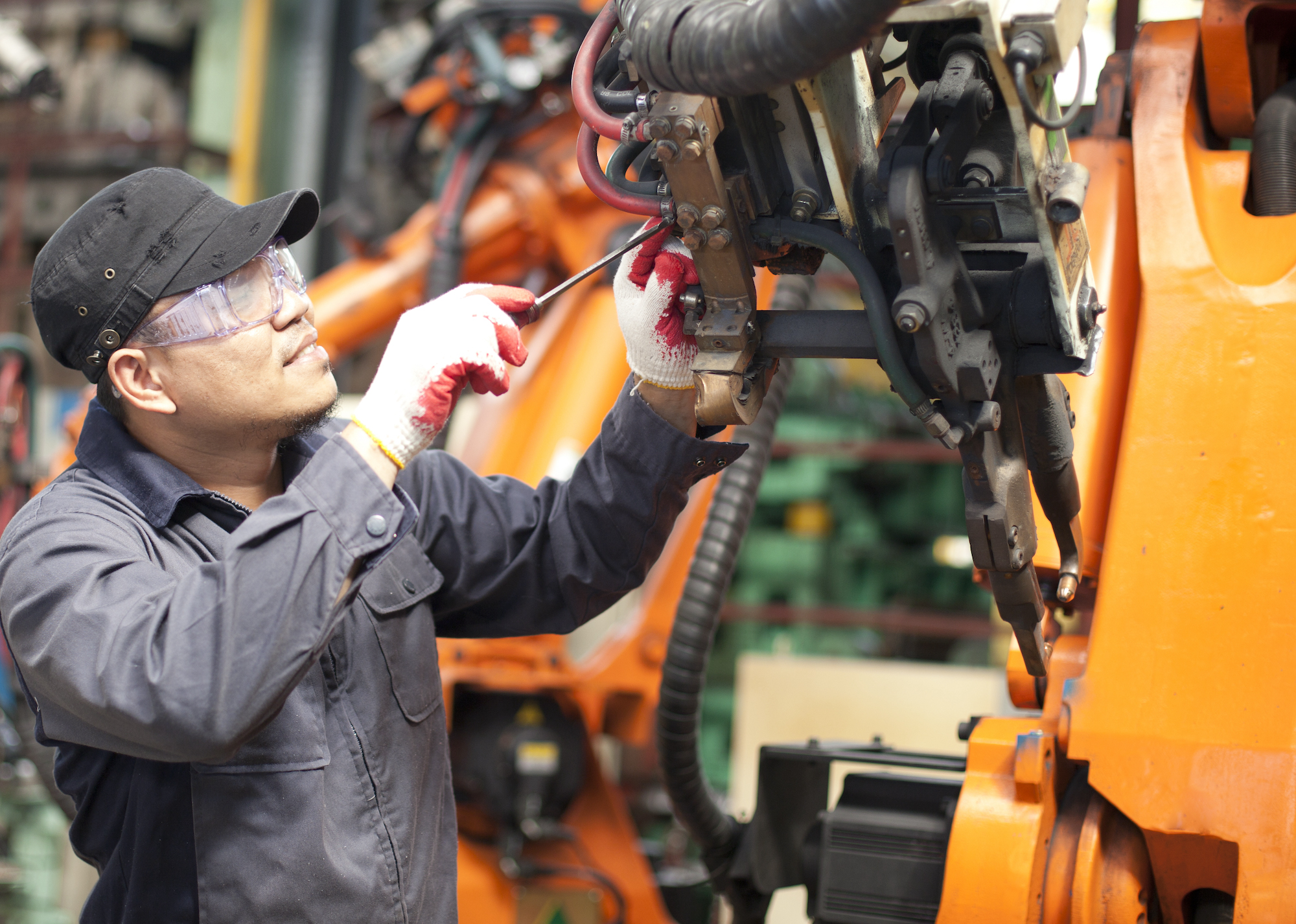The Advantages and Disadvantages of Automation in the Workforce

In today's modern manufacturing world, traditional skills that emphasize more analog controls and machinery are being outpaced as automation in the workforce rises. With this new shift – automation and artificial intelligence (AI) being at the forefront – the future workforce needs technological know-how to keep up with the evolution of work.
Some workers will need to upskill, deepening their existing skill sets, while others will need to reskill, acquiring an entirely new set of skills.
In this blog, we discuss the rapid skill shift, automation and the future of the workforce, and how advances in technology impact the manufacturing industry.
Skill Shift: Automation and the Future of the Workforce
Automation and AI are accelerating the pace at which workers shift their skill sets. According to McKinsey, three skill sets will be essential for the future of work: high-level cognitive skills, refined social and emotional skills, and technological skills.
Future Workforce Needs
1. Higher cognitive skills
Basic cognitive skills will decrease as they are replaced by automation, while higher cognitive skills (e.g., creativity, critical thinking, decision-making) will increase through 2030.
2. Refined social and emotional skills
Workers will be expected to have finely tuned social and emotional skills—skills that machines lack. As a result, the demand for these skills will increase by 26% in the U.S. across industries.
3. Advanced technological skills
As technology progresses, the need for basic and advanced digital skills will increase. People with these skills will have incredible job security in the age of automation.
As these three skill sets become increasingly important with the shift towards automation in the workplace, the need for basic cognitive skills and manual labor will decline.
Automation and the Future of Work in Manufacturing
The use of automation in manufacturing has been around for several decades, but the main change for manufacturing will come through a fusion of physical and digital manufacturing processes, known as smart manufacturing.
The Fourth Industrial Revolution is the concept that manufacturing can benefit from interconnected equipment, sensors, procedures, data collection, and IT systems for a total transformation of the way plants work.
While automation has the potential to increase productivity and efficiency, it also raises concerns about the future of work in manufacturing. In this section, we explore the impact of automation on the manufacturing industry and discuss the future of work in this rapidly evolving field.
Advantages of Automation in the Workforce
With the skill shift in automation and the future of the workforce, manufacturing companies are using automated systems to streamline their processes and enhance productivity. Here are several benefits of automation in manufacturing.
Automation can free up workers to accomplish more engaging tasks.
Automating repetitive tasks allows employees to redirect their attention to more complex cognitive and creative tasks. This can lead to a more engaged and motivated workforce, improving overall job satisfaction and reducing turnover.
Automation can improve safety in the workplace.
Manufacturers can remove employees from hazardous environments by using robots and other automated systems to perform dangerous tasks. This can prevent workplace injuries as well as the risk of accidents at the workplace.
Automation can produce goods at a faster rate.
Automated systems can work 24/7 without needing breaks or rest, significantly increasing production output. This can be particularly useful for industries with high demand, such as food and beverage, consumer goods, and automotive manufacturing.
Automation can increase product quality.
Quality control is one of the most important responsibilities of a manufacturing plant. Automation performs work with less variability than humans, resulting in greater control and consistency of product quality.
Automation can add new types of jobs to the industry.
Companies adopting more automated systems will require employees to learn new technical skills to program and maintain these systems. This opens up opportunities for workers to upskill or reskill to prevent being displaced.
Keep in mind that change management for new technology implementation will be crucial to workers adopting these new technologies.
Disadvantages of Automation in the Workforce
While automation can provide many benefits, it also raises concerns about the future of work in manufacturing.
Worker displacement
Worker displacement is often the number one concern when it comes to automation in the workforce. Some estimates predict that machines could displace up to 20 million manufacturing jobs by 2030.
High costs
Another primary disadvantage of automation is the high cost of implementing and maintaining these systems. Almost 99% of all manufacturing companies in the U.S. are small businesses, so the cost of hardware, software, and maintenance can be significant.
Technical issues
Automated systems are naturally complex and require specialized knowledge to design, program, and maintain. Delays and disruptions in production can be costly for manufacturers when technical issues arise.
Dependence on technology
A major, realistic concern about technology is that it may create a dependence on these advanced systems. Reliance on technology impairs critical thinking skills, increases mental illness, makes us more impatient, impacts our memory, etc.
Lack of flexibility
Automated systems are designed to perform specific tasks and can be challenging to modify or adapt to changing production needs. This lack of flexibility can limit the company's ability to respond quickly to changes in demand or production requirements.
Manufacturers need to take a human-centric approach to automation. This means ensuring that employees are involved in the design and implementation of automated systems and that the technology is used to complement human skills rather than replace them.
Hire Skilled Workers in the Manufacturing Industry
Without a doubt, manufacturers that invest in advanced technologies will see growth. Automation is revolutionizing the manufacturing industry, increasing productivity, improving product quality, and reducing costs. However, it also raises concerns about the future of work in the industry, which are notable.
Employers must consider the implications of technology, both the advantages and disadvantages, and invest in change management for new technology implementation to ensure their workforce transitions well.
As the manufacturing industry continues to evolve, it's essential for workers to acquire new skills and adapt to the changing landscape. This may involve upskilling or reskilling, as well as developing a broader understanding of the technologies and systems that are used in the industry.
If you’re an employer in the manufacturing industry looking for skilled workers, get in touch with a Skillwork recruiter. We can help you right-size your staff and grow your business with outstanding tradesmen who have a range of skills and competencies to support your growing labor needs.


